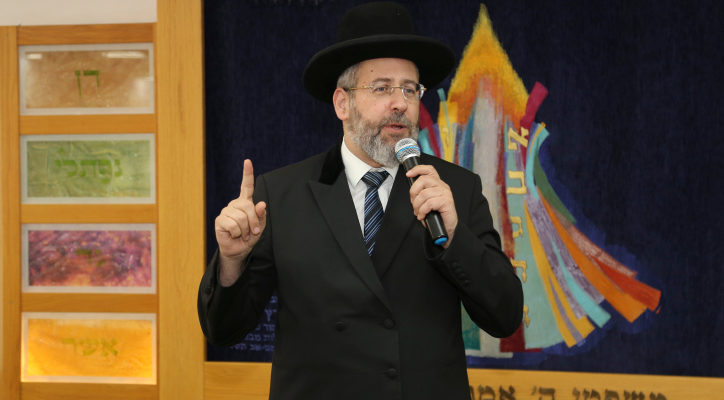Chief Rabbi David Lau invokes ‘pikuach nefesh’ to override Sabbath prohibitions, urges Israeli rescue teams in Turkey to continue operations on Jewish holy day.
By The Algemeiner Staff
As the death toll from Monday’s devastating earthquakes in Turkey and Syria passed the 21,000 mark on Friday, Israel’s chief rabbi issued a letter reminding Israeli Jewish rescue workers to continue their operations through Friday night and Saturday, the Jewish Sabbath, in accordance with pikuach nefesh, the halachic concept that the saving of a life overrules the commandments in Jewish law.
In his message, Chief Rabbi David Lau urged that during the “holy shabbat,” field hospitals should “continue to function normally.”
He emphasized: “Wherever there is any chance of saving lives and finding survivors, the engineering team must continue its activities.”
Lau quoted from the Biblical Book of Isaiah as he offered a “prayer that more robbery and destruction shall not be heard in the land.”
Israel’s military has dispatched 380 of its personnel to Turkey, including search-and-rescue and medical teams. The Jewish state has also established a field hospital in the city of Kahramanmaraş, the center of the quakes’ destruction.
Earlier this week, Turkey’s chief rabbi issued a prayer on Tuesday for those affected by the destruction.
“Grant patience, fortitude and courage to our brothers and sisters who are currently waiting to be rescued under the rubble, and bestow strength, strength and success to the officials who sacrificed to bring them back to their families and society as soon as possible,” Rabbi Isak Haleva said in his message of prayer.
On Thursday, the World Health Organization (WHO) warned that survivors of the earthquakes could soon face new difficulties.
“It’s a second disaster looming unless we act very, very fast, meaning shelter, food, water, and medicine because it’s freezing cold,” Dr Hans Kluge, WHO’s regional director for Europe, told the BBC.





